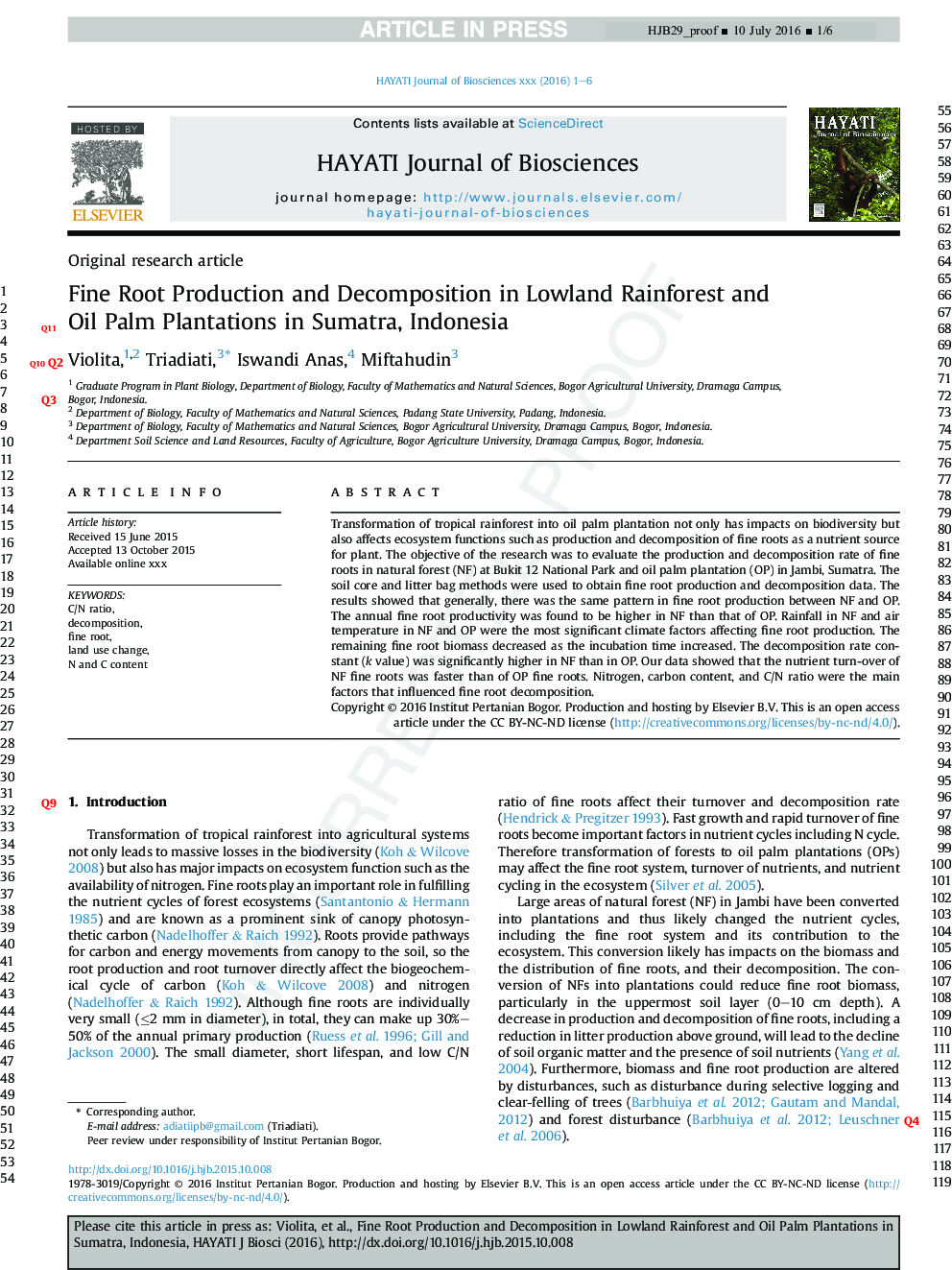| Article ID | Journal | Published Year | Pages | File Type |
|---|---|---|---|---|
| 8415257 | HAYATI Journal of Biosciences | 2016 | 6 Pages |
Abstract
Transformation of tropical rainforest into oil palm plantation not only has impacts on biodiversity but also affects ecosystem functions such as production and decomposition of fine roots as a nutrient source for plant. The objective of the research was to evaluate the production and decomposition rate of fine roots in natural forest (NF) at Bukit 12 National Park and oil palm plantation (OP) in Jambi, Sumatra. The soil core and litter bag methods were used to obtain fine root production and decomposition data. The results showed that generally, there was the same pattern in fine root production between NF and OP. The annual fine root productivity was found to be higher in NF than that of OP. Rainfall in NF and air temperature in NF and OP were the most significant climate factors affecting fine root production. The remaining fine root biomass decreased as the incubation time increased. The decomposition rate constant (k value) was significantly higher in NF than in OP. Our data showed that the nutrient turn-over of NF fine roots was faster than of OP fine roots. Nitrogen, carbon content, and C/N ratio were the main factors that influenced fine root decomposition.
Related Topics
Life Sciences
Agricultural and Biological Sciences
Ecology, Evolution, Behavior and Systematics
Authors
Violita Violita, Triadiati Triadiati, Iswandi Anas, Miftahudin Miftahudin,
